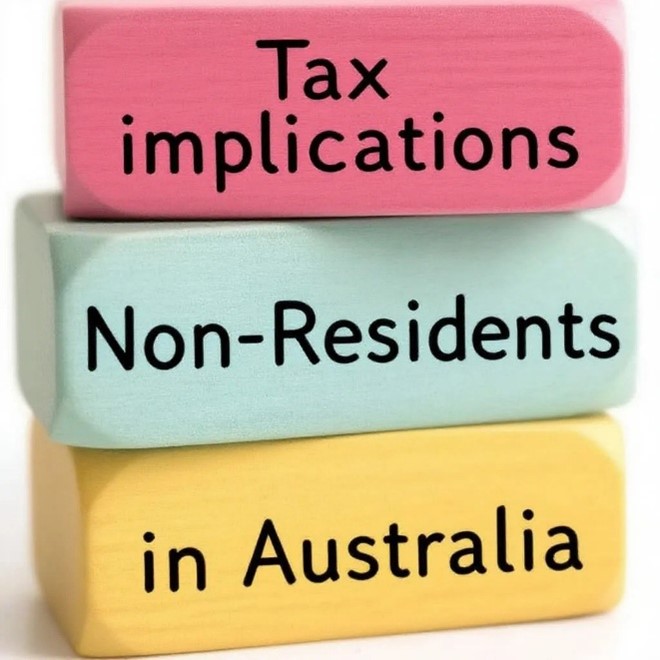When considering tax implications for non-residents in Australia, it is important to be aware of the various obligations that come with living, working, or investing in the country. Whether you are an Australian expat residing overseas or a foreign investor looking to engage in Australian property investments, understanding the tax requirements is crucial for compliance.
One significant aspect to consider is the treatment of taxable income for non-residents. For foreigners buying property in Australia, only income derived from Australian sources is subject to taxation. This includes rental income from Australian properties, income generated from businesses and investments within Australia, dividends from Australian companies, and profits from the sale of taxable Australian property. Calculating taxable income involves deducting allowable expenses from assessable income, resulting in the taxable profit.
Non-residents are subject to foreign resident tax rates in Australia. Unlike residents who benefit from a tax-free threshold, non-residents are taxed at a flat rate on all Australian-sourced income, with higher tax rates applicable at various income thresholds. Understanding these tax rates is essential for accurate tax planning and compliance.
Capital Gains Tax (CGT) is another important consideration for non-residents in Australia. CGT is not a separate tax but is treated as part of the net ordinary income on tax returns. Non-residents are liable to pay CGT on the sale of any Australian property they own, including residential, commercial, and rental properties. It is worth noting that if a property was previously the main residence of a non-resident and is sold, the 50% main residence exemption does not apply, resulting in taxation on the total capital gain.
Foreigners are permitted to buy property in Australia, but specific regulations and restrictions apply. Approval from the Foreign Investment Review Board (FIRB) is generally required for property purchases, and limitations exist on the types of properties that can be acquired. Familiarizing oneself with these rules and procedures is essential for a smooth property acquisition process.
Land tax may be applicable to non-residents who own property in Australia, including expats and foreign investors. Rates and thresholds vary across states, with additional surcharges often imposed on non-residents. Understanding the regulations specific to the state or territory where the property is located is essential to ensure compliance with land tax requirements.
Rental income earned in Australia by expats or foreign investors should be declared in Australian tax returns. Claiming tax deductions for allowable expenses related to rental properties, such as property management fees, repairs, and depreciation, can help reduce tax liabilities and maximize savings. Understanding the tax implications of rental income is crucial for effective tax planning.
Stamp duty is a significant consideration for non-residents purchasing property in Australia. Each state and territory has its own stamp duty rates and regulations based on property price, purpose of purchase, and property location. Non-residents are typically subject to additional surcharges on stamp duty, which vary depending on the jurisdiction.
Utilizing negative gearing can be beneficial for non-residents to claim deductions for expenses related to investment properties against their Australian taxable income. This strategy allows for the offsetting of certain expenses, such as interest on loans, property management fees, and depreciation, against taxable income, potentially reducing tax liabilities.
Non-residents owning Australian property can claim various tax deductions to offset taxable income and maximize savings. These deductions typically include expenses related to earning rental income, maintenance and repair costs, interest on loans, and depreciation of property and assets. Understanding the allowable deductions and keeping accurate records is essential for tax compliance.
When filing tax returns as a non-resident, declaring all Australian-sourced income accurately and on time is crucial to avoid penalties and interest charges. Obtaining a Tax File Number (TFN) is advisable to ensure lower withholding tax rates. Failure to provide a TFN may result in higher withholding tax rates on income in Australia, impacting take-home pay significantly.
Your tax residency status plays a crucial role in determining tax implications for mortgages and property investments in Australia. Factors considered by the Australian Taxation Office (ATO) include physical presence, intention to stay, and ties to Australia, distinct from citizenship status. Understanding the implications of non-resident tax on mortgages is essential to make informed decisions regarding property investments.
In conclusion, navigating Australian taxation laws as a non-resident can be complex. Seeking professional support and gaining adequate knowledge of tax obligations is essential for ensuring compliance and making informed financial decisions. By understanding the tax implications for non-residents in Australia, individuals can effectively manage their tax responsibilities and maximize their financial outcomes.






